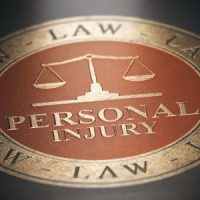Privileges and Confidentiality: Here’s When and to Whom it Applies

You are probably aware of attorney client privilege. This is the doctrine that makes everything that you say or write to your attorney, and everything your attorney says or writes to you, absolutely private, privileged, and confidential. Nobody can ask you or your attorney what either of you said to or told each other.
But there are other privileges as well. It’s important to understand these privileges, because your injury case could take time to resolve. During that time, as you are going through difficult times, you may want to rely on others—friends or family—for help, guidance, or just a friendly ear.
So who can you speak to confidentially and privately about your accident or your injuries, with the confidence of knowing that what you are saying is protected and confidential?
Married Couples and Spouses
Tennessee recognizes a privilege in communications between married spouses. The spouses must be legally married, and not separated.
In a civil case, either spouse—the one testifying, or the one who is a party to the case (such as an accident victim suing for damages), can object to being forced to reveal or disclose any communications between the spouses.
This privilege exists in recognition of the importance of marriage, and as a public policy, to recognize that it is not good for society to compel one spouse to testify against the other.
Note that this privilege doesn’t apply in divorce cases, or in cases involving spousal or child abuse.
Counselors and Therapists
Similarly to the marriage privilege, so too are communications with marital counselors also privileged. This includes marriage and family counselors, whether they are in private practice, government, or whether the counselor works for or is affiliated with a religious organization (for example, marriage counseling provided by your church or temple).
Any communications with psychiatrists and psychologists are also privileged, except for those communications where the patient indicates that he or she may hurt himself or others.
Social Workers
There is even a privilege between people and social workers.
For many accident victims, who rely on public benefits, or who may be elderly or disabled, and who need to speak with their social worker about their accident, or about getting the necessities of life while injured, this privilege can be vitally important.
Religious Leaders
Communications between you and any religious leader or clergy are confidential, so long as the religious leader is over the age of 18. The privilege applies to almost every religion. A judge will have to determine whether the person spoken to, actually qualifies as a “religious leader” or clergy member, where it is not otherwise clear.
The Media
Members of the news media have a privilege to disclose their sources. While not always applicable in personal injury cases, neither you or the Defendant in your case can force a member of the media to disclose information about a news report, in cases that may have more high profile, newsworthy aspects to it.
Call the Knoxville personal injury attorneys at Fox Farley Willis & Burnette, PLLC, for help today to understand what to expect in your injury case.
Sources:
tncourts.gov/rules/rules-evidence/501
casetext.com/rule/tennessee-court-rules/tennessee-rules-of-evidence/article-v-privileges
